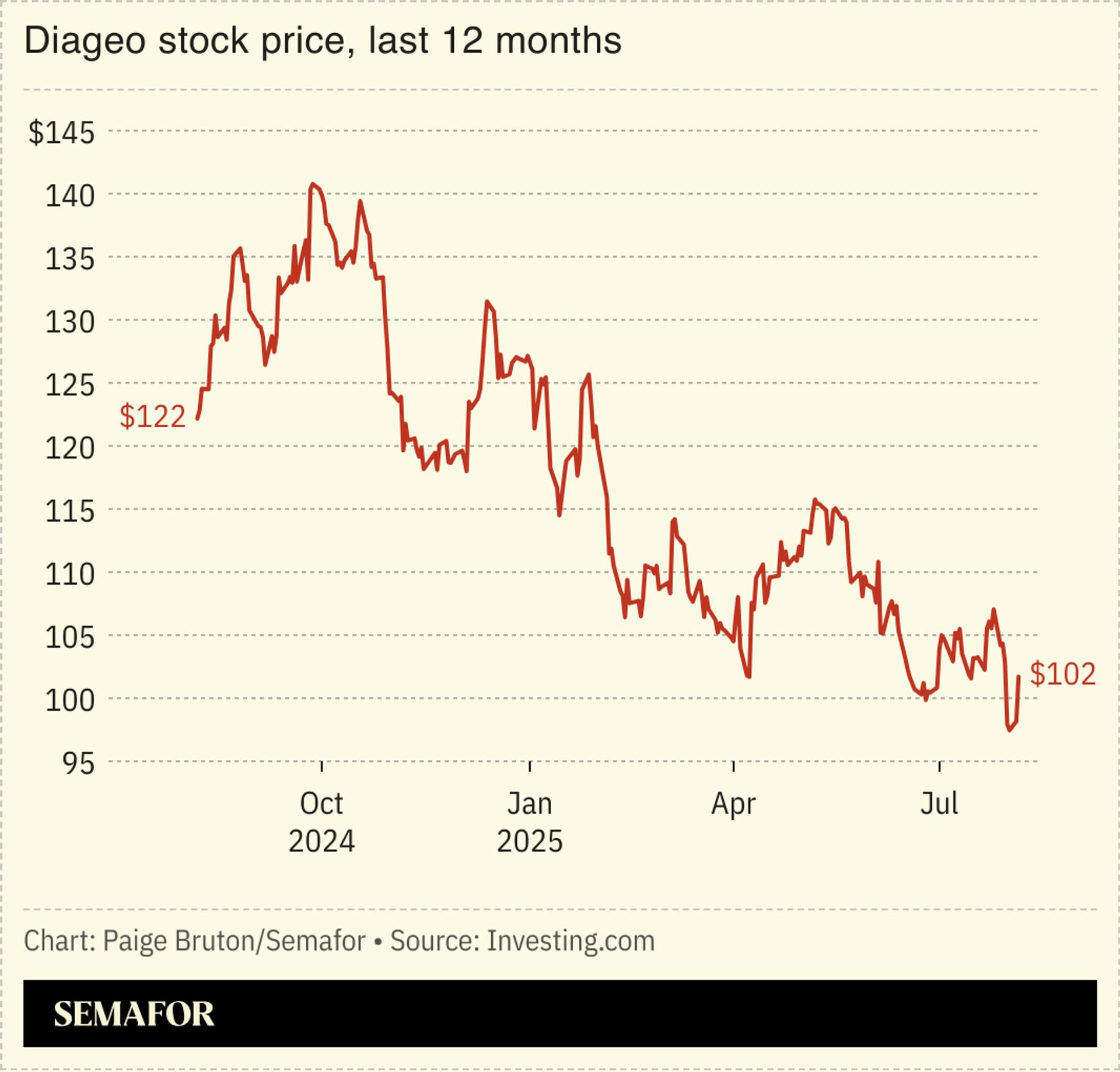The News
British drinks giant Diageo is grappling with mounting challenges in Kenya, its biggest East African market, last month appointing Goldman Sachs and Bank of America to evaluate the future of its controlling stake in the Nairobi-headquartered East African Breweries Limited.
Kenyan authorities are considering sweeping regulatory changes that would raise the minimum drinking age from 18 to 21, and limit the sale of alcohol to pubs, bars, and licensed shops. Uncertainty around taxation has further added to the difficulties around operating in Kenya. In recent years high taxes have hastened the exit of international manufacturers such as Proctor & Gamble and Johnson & Johnson, with analysts now questioning whether Diageo will follow suit.
The drinks company could fetch up to $2 billion if it sold its 65% stake in EABL, with the likes of AB InBev, Heineken NV, and Castel Group thought to be among potential buyers. Such a move would come as Diageo is trying to free up $3 billion in cash flow in its global operations by making substantial asset sales by 2028 and cutting $500 million in costs. The cost-cutting plan announced in May was partly responsible for an improvement in Diageo’s stock price after it published its preliminary annual results on Tuesday last week.
“The unpredictability of the tax regime in Kenya has been a common complaint for large companies,” said Ian Mwangi, a Nairobi-based economist, adding that the proposed alcohol-control measures created further uncertainty from a regulatory standpoint. “With the pressure to sell off assets coming from Diageo’s investors, altogether this could create the right conditions for a sale of [Diageo’s stake in] EABL.”
Alex Muchiri, a Nairobi-based tax and finance consultant, also said that Kenya’s proposed alcohol regulations would be a major concern for Diageo. A ban on the sale of alcohol in supermarkets, restaurants, and online will especially hit the drinksmaker as it relies on these venues for revenue and has invested heavily in delivery platforms “EABL is a prime candidate for sale in the Diageo portfolio and would go a long way in freeing up cashflow, so I think a sale is likely. But the steady returns it promises could also lead them to keep it.”
Diageo did not immediately respond to a request for comment on whether it was leaning toward a sale.
Know More

Diageo has exited several key African markets in recent years as part of a strategic shift to an asset-light model, selling its stakes in Guinness Nigeria, Guinness Ghana, Guinness Cameroon, Seychelles Breweries, and Ethiopia’s Meta Abo Brewery.
With Kenya accounting for 63% of EABL’s revenues, a major regulatory shift on alcohol could affect sales volumes for Diageo products including beers, wines, and spirits.
On July 31, EABL posted an after-tax profit of $55 million, up from $46 million the previous year. But the Kenya-based holding company’s tax expenses have been outpacing its growth in earnings over the past five years. EABL CEO Jane Kariuki warned that the proposals — aimed at curbing alcohol abuse among young people — could end up leading to a surge in the consumption of unlicensed, illicit liquor that would deny the government tax revenues, while also causing health concerns. Alcohol distributors and celebrities who endorse alcohol brands have also criticized the move.
Step Back
According to a 2022 study by Kenya’s alcohol and drug abuse authority, one in every 20 Kenyans aged 15–65 years, around 1,357,040 people, were addicted to alcohol. The World Bank in a public finance review published in May recommended that Kenya’s government raises excise taxes on alcohol, cigarettes, and sugar-sweetened beverages. It said the products account for 9.7% of all deaths in Kenya, significantly higher than the regional average of 7.4%.
Martin’s view
The unpredictability of Kenya’s tax system has long been a source of frustration for foreign manufacturers. Procter & Gamble, Reckitt Benckiser, Johnson & Johnson, Cadbury, Eveready, and GlaxoSmithKline have all scaled down or closed sites in recent years, citing the country’s tax environment and high operational costs as factors.
Last year, the government was forced to make a U-turn following widespread criticism after it emerged that EABL was relying on short-term commercial loans to comply with a tax authority requirement. Streamlining the tax regime to offer companies greater certainty and flexibility will be crucial to boosting the country’s competitiveness.
The proposed regulations on alcohol also seem out of touch. Banning the sale of liquor at supermarkets and restaurants could have a knock-on effect on the retail sector and jobs. A potential ownership change at EABL is also raising fears about job losses and the resulting impact on the local economies: The company employs more than 1,500 people across its operations in Kenya, Uganda, and Tanzania.
Room for Disagreement
Kenya’s Interior Minister Kipchumba Murkomen dismissed concerns about the potential economic impact of the proposed regulations, instead arguing that the government’s priority was to protect young people from the effects of alcohol abuse. “Some companies are saying their profits will go down and the economy will suffer if we raise the drinking age to 21. Is there any sane person saying children aged 18-20 should drink alcohol?” he said at a forum this month. “These companies are not ashamed that they want to make a profit from children.”
The View From THE US
More Americans are abstaining from alcohol, new Gallup data showed. The percentage of adults who drink fell to 54%, the lowest rate ever recorded in the nearly 90 years Gallup has tracked the behavior. Drinking rates fell across every demographic and young people were most likely to believe drinking is bad for your health.
Notable
- Diageo revealed last week that its operating profits were projected to decline by $200 million in the current year, primarily due to US tariffs.

